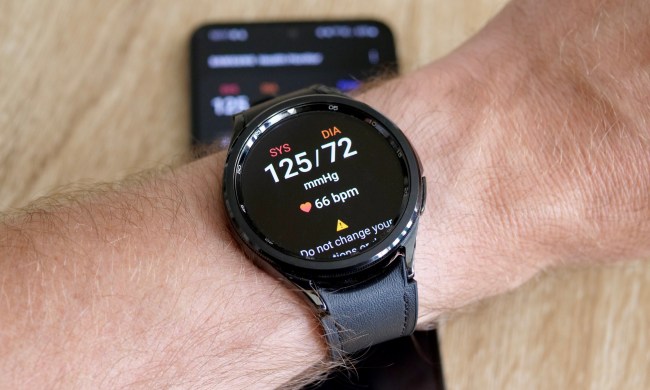
We've tested dozens of smartwatches, including many luxury models that specifically target watch enthusiasts. Our rigorous real-world testing gives us unmatched insight into the smartwatch market. The best Android smartwatch today is either the Samsung Galaxy Watch 4 Classic or the Mobvoi TicWatch Pro 3. Both represent the best their respective operating systems have to offer, with slick performance, attractive hardware, and clever control systems.
If you want a smartwatch for your Android phone, the number of choices can be overwhelming. Our list does not only include smartwatches that use Google's Wear OS software but Samsung's Tizen software and other operating systems too. Almost all smartwatches will work with your Android phone, except for the Apple Watch. If you own an iPhone, take a look at our list of best smartwatches to see why the Apple Watch is our overall recommendation.
Once you've chosen your watch, it's always good to grab it at a bargain price, and we've always got an up-to-date list of the best smartwatch offers.
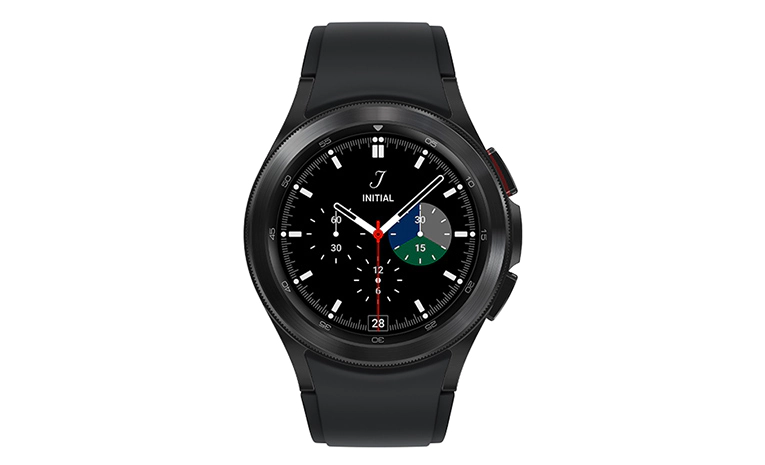
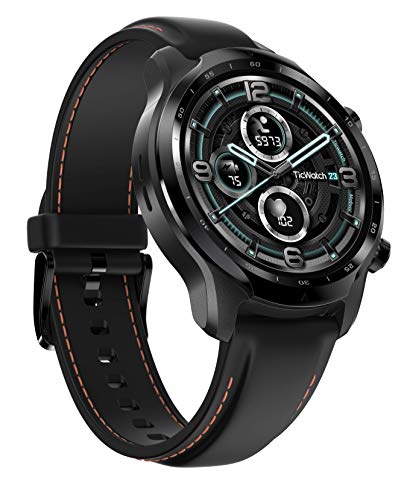



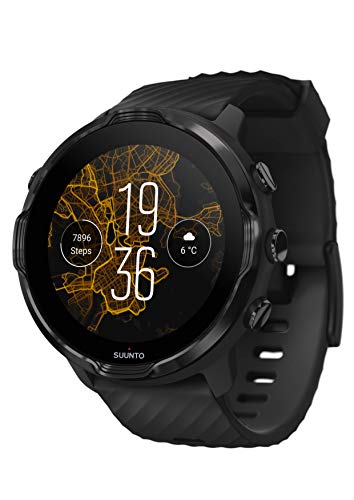


Best overall
Samsung Galaxy Watch 4 Classic
- Cohesive, mature design
- Rotating bezel is intuitive
- One Watch UI is neat and logical
- Comprehensive health tracking
- Choice of style and size
- Battery doesn't last two full days
- Wear OS 3 software lacks polish
- Too large to wear at night
The new Samsung Galaxy Watch 4 Classic and Samsung Galaxy Watch 4 both take the crown as the best Wear OS smartwatch on the market. The Galaxy Watch series has always been the strongest competitor to the Apple Watch, at least on Android phones. Samsung's proprietary Tizen system has generally been smoother, cleaner, and just plain better than Wear OS, especially when it comes to user control. The Galaxy Watch 4 Classic continues this legacy despite moving to Wear OS 3 software with Samsung's One Watch UI over it.
In terms of physical appearance, the Watch 4 Classic has a familiar face with two size options: 42mm and 46mm. The bright AMOLED touchscreen screen varies between 1.2 to 1.4 inches depending on the model you get. You also still get Samsung's famous rotating bezel around the screen, giving you an easy and ergonomic way to scroll through apps and Tiles. The Watch 4, unfortunately, sheds the physical bezel in favor of a digital one with haptics, which our reviewer found to be less pleasant to use than the Classic even though the fit was better for narrower wrists. Aside from these physical differences, the two models are identical in terms of features.
The health and fitness tracking features on the Watch 4 Classic are particularly strong. Aside from basics like notifications, media controls, and sleep tracking, it's capable of measuring heart rate, blood oxygen levels, Body Mass Index (BMI), electrocardiogram (ECG), Basel Metabolic Rate (BMR), stress tracking, period tracking, and more. The battery on the Classic lasted a day in our testing while the Watch 4 managed two days of runtime. Last, but not least, both smartwatches are powered by an Exynos W920 processor, have 1.5GB RAM, and 16GB of internal storage making them fast and responsive, and able to handle apps like Spotify and YouTube offline, allowing you to leave your phone at home while on a jog.
All these features, power, and software translate into the single best smartwatch experience you can get on an Android smartphone (it'll even work with the iPhone, but we don't recommend it since it'll be missing key features). The Samsung Galaxy Watch 4 Classic comes in at a $350 starting price, making it cheaper than its predecessor the Galaxy Watch 3, while its sibling the Watch 4 starts at $220. Both are well worth the money.


Best Wear OS
Mobvoi TicWatch Pro 3
- Three-day battery life
- Latest Snapdragon Wear 4100 processor
- Fast performance
- Always-on screen now has a backlight
- Wear OS still frustrates
- No color or strap choices
Mobvoi’s TicWatch Pro 3 represents the pinnacle of Wear OS smartwatch technology at the moment, and it excels at delivering long battery life due to the clever use of a second screen. It’s the first smartwatch available with Qualcomm’s new Snapdragon Wear 4100 processor inside, and it’s much more capable than the aging Snapdragon Wear 3100 found in most competing models.
The fast processor is more energy efficient on its own, but it’s matched with a second LCD screen on the TicWatch Pro 3, which deals with the ambient always-on screen to drastically lower power consumption. We got three days of use out of the TicWatch Pro 3 in our review, which is three times what many other smartwatches can deliver. Mobvoi has used this tech before, but it has been improved here with a backlight, making it easier to see at night. What’s more, if you use the Essential Mode, standby can be extended to 45 days by cutting out some of the connected features.
You can track fitness, sleep, and activity with the TicWatch Pro 3, which also has a heart rate sensor and can read blood oxygen levels too. It has an IP68 water resistance rating, plus many Mobvoi apps for breathing exercises, relaxation methods, and exercise plans. While the style is a little ordinary, it’s well built and comfortable to wear, despite the 47mm case size. Google’s Wear OS software is the weak link and isn’t as reliable as Samsung’s Tizen, but the TicWatch Pro 3 will receive an update to Google and Samsung's new Wear OS 3 in 2022.
The Mobvoi TicWatch Pro 3 is the most powerful smartwatch you can buy for your Android phone, and it has the longest battery life too. If you live in the U.K. or parts of Europe, there's an LTE version of the Ticwatch Pro 3 available too, and we had a closer look at the new model here. If you want a Wear OS smartwatch with the Qualcomm Snapdragon 4100 inside, and an update to Wear OS 3 next year, but aren't so worried about the TicWatch Pro 3's dual-layer screen, take a look at the $200 TicWatch E3. It provides a faster processor at a more affordable price.

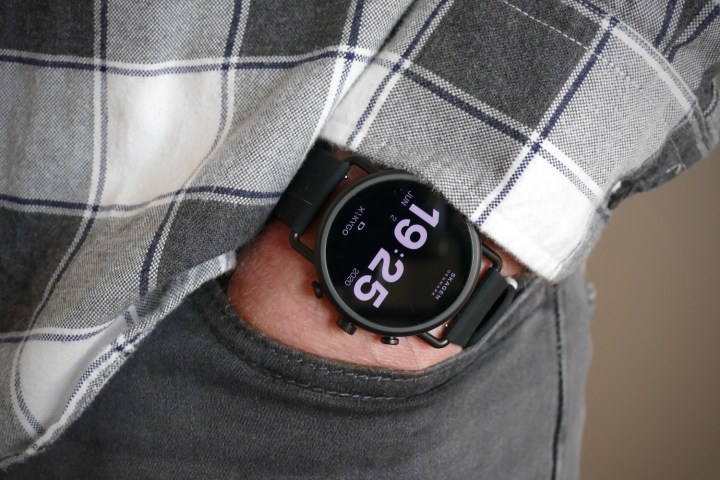
Best for fashion
Skagen Falster 3
- Stealthy, cool, minimalist design
- X By Kygo branding is subtle but effective
- Makes and receives calls
- All-day battery and fast charging
- WearOS can be frustrating
The Skagen Falster 3 perfectly balances understated, fashionable design with strong technology. The 42mm body has a 1.2-inch OLED screen and three buttons on the side for a sleek look that will suit most wrists. The stainless steel Falster 3 comes in gunmetal gray with a choice of colorful straps, or in a stealthy all-black design if you choose the Falster 3 X By Kygo special edition.
It uses the Qualcomm Snapdragon 3100 platform with 1GB of RAM, plus it has NFC for Google Pay, GPS, a heart rate monitor, the ability to make and receive calls from your phone, and the latest version of Google’s Wear OS software. Performance is good too, and the battery will last a day even with a workout session, plus it charges to full in about one hour. Only Wear OS’s frustrations disappoint, but they’re minimized on the otherwise excellent Skagen Falster 3.
If the Falster 3's design is too minimalist for you, then do take a look at the Fossil Gen 5, which shares the same technology but in a slightly larger 44mm body.


Best for style
Moto 360
- High quality build and materials
- Two straps in the box
- Design and size will suit many wrists
- Solid performance (for WearOS)
- WearOS still lags WatchOS
- No way to take calls
Following a much-needed price cut soon after launch, the Moto 360 has become a more tempting prospect, particularly as it can now be found at even lower prices. Made from thick stainless steel and available in gold, steel, or black finishes with a choice of straps too, it's a great-looking, very stylish smartwatch. The top button on the side of the case rotates to navigate Wear OS more easily, and there is a heart rate monitor on the back. Qualcomm's Snapdragon Wear 3100 platform with 1GB of RAM powers the Moto 360.
We've added the Moto 360 to the list because of the classy design and manageable size, making it suitable for many people, plus the simple software which sticks rigidly to standard Wear OS for relatively smooth performance. The battery life is good too, though you won't get more than a full day.


Best for women
Fossil Gen 5E
- 42mm and 44mm case options
- Stylish, varied design
- Easy to use basic fitness tracking
- Snapdragon 3100 processor is out of date
- Wear OS's notification support is unreliable
Fossil’s Gen 5E smartwatch comes in two sizes, with the 42mm model designed for smaller wrists, and it comes attached to an 18mm strap. There are two different versions in gold or stainless steel finishes, with metal bracelets or a silicone strap to choose from, and the option of a sparkly bezel on one model too. We reviewed the 44mm version, but the technology is the same regardless of size.
It’s quite well priced, which means the older Qualcomm Snapdragon 3100 processor can be forgiven. Sadly, only the TicWatch Pro 3 comes with the Qualcomm Snapdragon 4100 processor at the moment, and it doesn’t have a very female-friendly design. The Fossil Gen 5E does have some great software benefits, with an easy-to-use fitness tracking feature and an extended battery mode.
There’s a heart rate sensor on the back, Google Fit, sleep tracking, and all the usual Google Wear OS features too, including notifications from your phone and Google Pay contactless payments. It doesn’t have GPS though, so it’s not for serious runners. Despite the older processor, performance is good, and the battery will last a full day.
Fossil’s decision to make a smaller case with a choice of designs and straps ensures the Fossil Gen 5E is the best option for women at the moment, but there is an older alternative if you can still find one for sale. Kate Spade, the fashion-forward, tech-friendly company, released the Kate Spade Scallop 2 a while back, and it has an understated, classic design with tech including GPS and a heart rate sensor, new watch faces, and NFC for Google Pay. We really liked the Scallop 2, so if the price is right it's still worth picking up.


Best for runners
Suunto 7
- Comprehensive fitness features
- Two-day battery life
- Smooth performance and software
- Hard-wearing, water resistant case
- Annoying buttons can frustrate
- Expensive compared to the competition
- Only best for dedicated fitness fans
Suunto is best known for its hardcore fitness watches, but last year launched its first smartwatch using Google’s Wear OS. The Suunto 7 embraces the brand’s sporty design and superb fitness tracking ability while pairing it with the more everyday usable software and excellent battery life. Yes, really, excellent battery life. It lasted two days on a single charge in our review even with regular use.
Fans of the brand will want more than that, and happily, Suunto’s own comprehensive training app is included, along with a clever “heat” map showing popular local walking and running routes. There’s a heart rate monitor on the back and GPS too, plus the usual features including NFC. The battery improvements come from a close partnership with Qualcomm, and tweaks made to the Snapdragon 3100 chipset inside the watch.
The Suunto 7 is expensive for a Wear OS watch, but about what you’d expect to pay for a top-flight GPS-based fitness tracking smartwatch without Google’s software.


Best cheap Android smartwatch
Amazfit GTR 2e Smartwatch
- Plenty of workout and health tracking features
- Low price
- Pretty design
- Comfortable to wear all the time
- Limited notification support
- Battery life much shorter than advertised
It’s possible you uncovered Amazfit’s smartwatches while searching for low-priced smartwatches on Amazon. If that’s the case, forget anything you may have heard about the first generation of Amazfit watches. Recent models, like the Amazfit GTR 2e and the GTS 2e, are significantly improved in terms of function and design. We recommend the GTR 2e version, as it’s incredibly similar to the Amazfit GTR 2, only less expensive. Differences between the two devices are minimal. You may notice a more curved screen, Wi-Fi, and less internal storage — but the features aren’t a deal-breaker.
Manufacturers made the GTR 2e with an aluminum and glass front combined with a plastic back. The watch is lightweight and fits snugly on your wrist. It features a sleek 1.39-inch AMOLED screen, which is both reactive and colorful. The smartwatch supports Amazfit’s operating system, which is where you’ll find the bulk of the company’s design improvements. It’s fast, reliable, and functional. It can pair quickly to your smartphone, and the Zepp app needed to sync your watch is improved as well.
GTR 2 makes an effort to stack up with more expensive competitors. It features a heart rate sensor and can measure blood oxygen levels. Currently, there are 90 different activities to track data, and it’s all displayed clearly on the screen. You’ll receive notifications on your watch, although the messages come across in an odd format, and you won’t be able to interact with them on your watch itself. The battery life doesn’t quite reach Amazfit’s promise, but it gets close to about 10 days. The Amazfit GTR 2e’s competitive price makes it a great value.

Frequently Asked Questions
Google’s Wear OS software is changing. During its last annual I/O developer conference, Google announced it was working with Samsung on the next generation of software for smartwatches. The resulting software platform will merge both Google’s Wear OS and Samsung’s Tizen and will be called, simply, Wear. It's also being referred to as Wear OS 3. In addition to Samsung’s involvement, Google will also leverage the expertise it has gained from acquiring fitness experts Fitbit.
Samsung's new Galaxy Watch 4 and Galaxy Watch 4 Classic are the first smartwatches to come with Wear installed. Google has also announced the Mobvoi TicWatch Pro 3, the TicWatch E3, and newer Fossil watches will all receive an update. However, this isn't expected until the second half of 2022.
What does this mean for you? It means many smartwatches with Wear OS already installed may not get an update to the new software at all. It won't stop any of them from working, but it's worth considering if you plan on keeping your smartwatch for several years.
Touchscreen smartwatches aren't the only wearable option for your Android phone. There are various hybrid — meaning a combination of a traditional watch and smart features — and connected watches available too. Connected watches are the simpler option, in that they may offer basic connected features usually related to the watch itself, like changing the time zone and setting alarms, in an app rather than on the watch. Casio's connected G-Shock watches are a great example of this, with the MTG-B2000 sitting at the more luxury end of the range, and the G-Shock GBD-200 at the more affordable, more connected end.
Alternatively, hybrid watches edge closer to the full smartwatch experience, with the Skagen Jorn HR combining an E Ink screen with a normal watch face, and the Alpina AlpinerX using a small AMOLED screen to show information. All these watches use Bluetooth and an app to communicate with your phone and are a great midway point between a traditional watch and a smartwatch. Something to consider if you're not ready to make the jump to a full smartwatch yet.
Search Amazon for smartwatches and there are hundreds of results, many of which cost as little as $40 and look something like the Apple Watch. At such a low price these models are tempting, but be aware of what you're getting before hitting the buy button. While they may be described as smartwatches, most are glorified fitness trackers wrapped up in a more watch-like case.
We tried the Willfull Smart Watch and found that while it works, it looks and feels every bit of its then $36 cost, with a plastic case, low-resolution screen, and basic functionality. It wasn't terrible, but it wasn't something you'd buy and wear with pride either. We recommend spending more and getting a smartwatch you can be proud of, and that ticks all the right feature boxes instead.
A fitness tracker prioritizes health by tracking things like steps, heart rate, and exercise reps. A fitness tracker often connects with other fitness applications like the Fitbit app, which can enhance its tracking abilities.
A smartwatch may have similar capabilities to a fitness tracker, but it also alerts you to what's happening on your phone. A smartwatch's main priority is to allow you to see what's happening on your phone — texts, alerts, etc. — and the fitness features are secondary.




